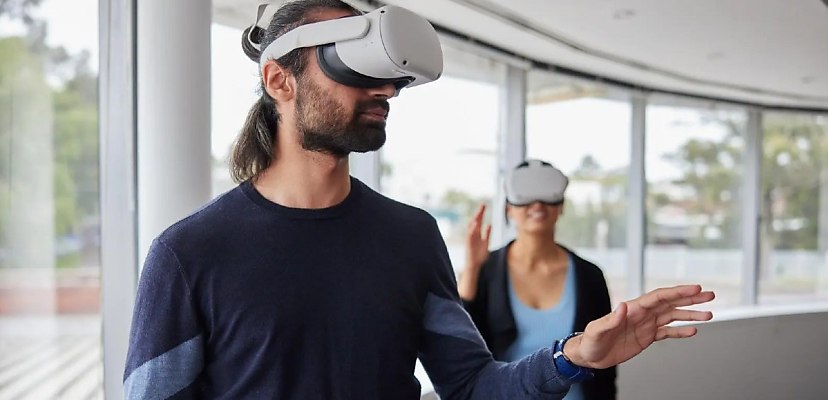Share this article on:
Powered by MOMENTUMMEDIA
Breaking news and updates daily.
The new D-Esc tool will teach carers how to empathise and de-escalate incidents with people living with dementia.

Dementia Australia has announced the launch of a new digital training tool to help carers learn how to manage and de-escalate behavioural emergencies with dementia patients.
D-Esc is a virtual reality training workshop that creates an immersive simulation of critical interactions with people living with dementia in a care setting.
The VR workshop is designed to help build empathy with dementia patients and to help boost carers’ understanding of their requirements – without resorting to “restrictive practices”. D-Esc can also help reduce the number of dangerous incidents while in care and reduce their severity.
The training workshop runs for three hours for up to 15 people and is aimed at health and aged-care workers.
According to Dr Kaele Stokes, Dementia Australia’s executive director of services, advocacy and research, D-Esc will become an integral part of workforce training and development.
“Behavioural emergencies and occupational violence in aged care are time-critical emergencies,” Dr Stokes said in a statement.
“We know that dementia can change people’s behaviour. People living with dementia may feel anxious, fearful, distressed, [and] confused. They may also be in pain or disorientated.
“Sometimes, the way they are experiencing a situation may mean a person is unable to communicate how they feel or what they are experiencing in the familiar ways.
“Additionally, the way a care worker communicates with people living with dementia is vital. Communication is not just talking.
“Gestures, movement and facial expressions can all convey meaning. Body language and physical contact become significant when speech is difficult for a person with dementia.
Phil Hazell, a Dementia Australia dementia advocate and someone living with younger onset dementia, believes the training will help other people like him feel more understood by their carers.
“I like to know that I am understood. It is important that people comprehend what dementia is and how it can affect people differently,” Hazell said.
“Training can help workers to understand, approach and help people living with dementia, without making assumptions.”
If this story has prompted any questions or concerns, please call the National Dementia Helpline 1800 100 500 (24 hours, seven days a week) or visit dementia.org.au.

David Hollingworth has been writing about technology for over 20 years, and has worked for a range of print and online titles in his career. He is enjoying getting to grips with cyber security, especially when it lets him talk about Lego.
Be the first to hear the latest developments in the cyber industry.